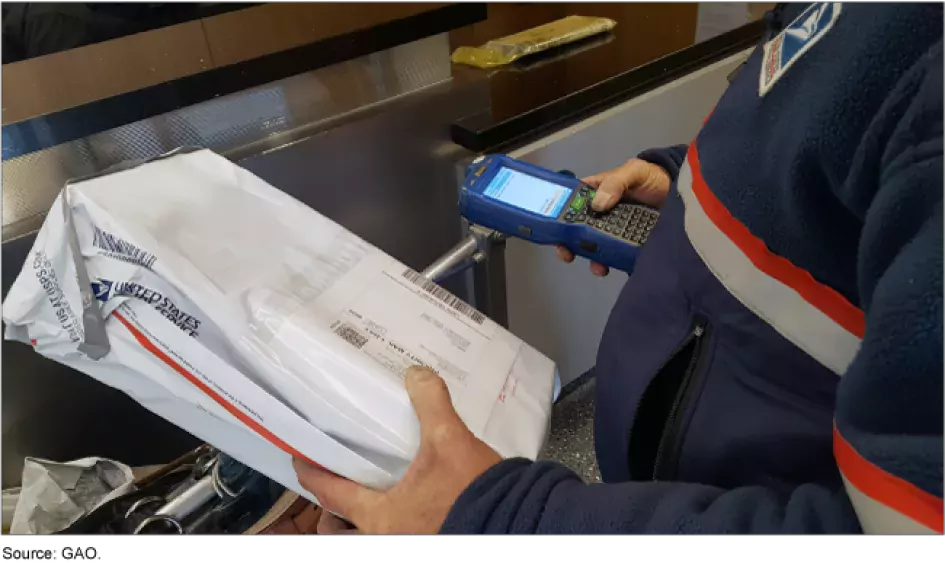You Say It’s Almost Festivus? Here’s How You Can Air Your Grievances to Federal Agencies
In 1997, the iconic sitcom Seinfeld introduced us to a new holiday. George Costanza’s family celebrated Festivus—an anti-holiday that starts with a gathering around an austere aluminum pole, and is followed by a dinner that includes the airing of grievances and the feats of strength.
While the grievances aired on Seinfeld tended toward the petty, many Americans have legitimate concerns or complaints about the services provided by federal agencies.
So, in honor of Festivus (observed on December 23), today’s WatchBlog post looks at ways you can air your grievances to federal agencies, and GAO’s work and recommendations on how agencies can make it easier for your voice to be heard.
Missing a package? The U.S. Postal Service delivers to about 147 million residential addresses and is responsible for delivering about 49% of all mail sent globally. In a September blog post, we highlighted some of the financial woes the Postal Service faces and how these issues may impact consumers. In May, we reported that USPS received about 10.7 million complaints in FY 2020, of which about 69% were related to missing or delayed packages. Customers can get help with package delivery issues or other concerns by contacting USPS’s Customer Care Center at 1-800-ASK USPS (1-800-275-8777) or by email.
Image

Canceled or delayed flight? In October, we reported on the aviation industry’s efforts to recover from the pandemic. When domestic air travel began to resurge, some airlines experienced service disruptions causing flight cancellations, missed connections, extended airport delays, and failure to provide prompt refunds. These problems have been attributed to workforce shortage despite federal payroll support for the airlines under the CARES Act, technology problems, and weather events. Should you find yourself facing a delayed or canceled flight, you are entitled to a refund—regardless of the reason. The Department of Transportation (DOT) provides information on aviation consumer protections on its website. This includes information on how to file a complaint.
Have a defective toy or other product? The U.S. Consumer Product Safety Commission (CPSC) is a small agency of about 500 full-time employees that monitors thousands of types of products for safety. These include everything from off-road recreational vehicles to the toys your kids could find under the tree this year. CPSC relies on consumers like you to help it identify and respond to potentially dangerous products. You can report an issue through CPSC’s SaferProducts.gov website. To learn more about CPSC and our work to help improve its efforts, check out our latest report from November 2020, and our blog post from March 2021.
Image

Concerned about your loan servicing or credit card fees? The Consumer Financial Protection Bureau (CFPB) provides a number of resources to help consumers understand their rights when, for example, applying for a loan, paying for college, or planning for retirement. Here at GAO, we monitor CFPB’s and other agencies’ efforts to protect consumers from financial exploitation and other risks. Check out our key issue page on consumer financial protection to find out more.
Have an issue with Social Security benefits? As the baby-boomer population ages, the Social Security Administration’s (SSA) workload has increased and many SSA employees are retiring. We reported on SSA’s efforts to modernize the way it serves the public to address these challenges. We’ve also reported on steps SSA is taking to address service disruptions related to processing disability claims and appeals due to office closures during the pandemic. If you have a question or concern about your Social Security benefits, you can email or call SSA at 1-800-772-1213.
Didn’t get your tax refund or have questions about your tax return? At the onset of the pandemic, IRS had to temporarily shut down its onsite operations, which included its mail processing facilities, and taxpayers had to wait longer for returns to be processed and to receive COVID-related economic relief. In July, we reported on IRS’s backlog of unprocessed returns and customer service issues involving its website and phone lines. IRS has taken steps to address COVID’s impacts on its operations and delays. However, if you still have questions about your return or need help on other tax-related issues, IRS’s Let Us Help You website provides customer service hotlines and other resources.
Need to report a tax cheat? Do you know someone who isn’t paying their fair share of taxes? The IRS Whistleblower Office pays rewards to those who provide credible information to IRS about tax cheats. Check out the IRS’s Whistleblower Office website to learn more about submitting information. Since 2011, we have reported on and made recommendations to IRS to help improve its whistleblower program. For example, in 2018, we reported that the whistleblower program has helped IRS collect billions in otherwise uncollected taxes. We also made recommendations to IRS on how to improve its documentation of whistleblower complaints and related data, which it implemented in 2019 and 2020.
Are you part of a military family and dissatisfied with your housing conditions? While the military provides housing for servicemembers and their families, the vast majority of this housing (99%) is built and maintained by private contractors. In March 2020, we reported concerns about how DOD monitors the conditions of this housing after reports from tenants of hazards, such as mold and pests. DOD is working to fully implement a “Tenant Bill of Rights” to reinforce its commitment to safe, quality, and well-maintained housing, among other initiatives. But if you are a military servicemember or family living in privatized housing with issues, the resources below can offer help:
- Army: Contact your local Military Housing Office hotline.
- Air Force: Visit the Air Force Housing website.
- Marine Corps: Visit the Marines’ family housing management and resources website.
- Navy: Tenant or landlord disputes can be submitted through the Navy’s Issue Resolution website.
- Comments on GAO’s WatchBlog? Contact blog@gao.gov.





